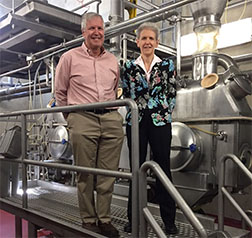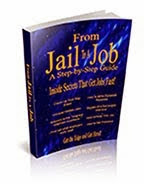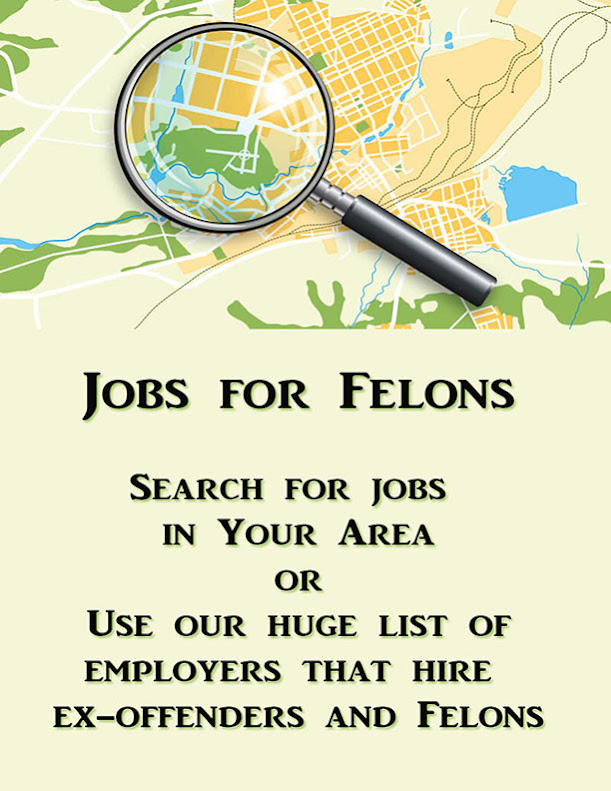Getting hired after serving time can be more difficult for some than for others
Candace Manriquez Wrenn Arizona Public Media
A group of scholars at the University of Arizona sought to find how felony convictions affect those looking to re-enter the workforce. Their study shows that the convictions aren’t the only hurdle for getting a job.
The U.S. Department of Justice projects that 9 percent of all men will serve time in federal or state prison. With the median time served being just over two years, most formerly incarcerated people will eventually be back on the job market.
Tamar Kugler is an associate professor in the Eller College of Management at the University of Arizona. She said the ability to find a job is critical, not only for those who’ve been to prison, but also for society.
"We want those people to be productive members of society, to be able to get a legit job, stay out of prison, earn enough money so they rehabilitate their lives."
But she said convicted felons can have a hard time finding work once they are released.
"Those people usually have lower education so it’s harder for them to find a job. And they have also experienced an erosion of skills from the fact that they have been out of the job market."
She notes that people who have served time also have a lack of ties to legitimate employers.
According to the Brookings Institution, in the first full calendar year following their release, almost half of those previously incarcerated have no reported earnings and the median earnings of those that do are just above $10,000 a year.
Kugler, along with Barry Goldman at the University of Arizona and Dylan Cooper at California State University, Channel Islands, cited research that shows that blacks and other minorities are more frequently denied jobs because of racial discrimination, but they wanted to test whether blacks with felony convictions were penalized more than whites with identical felony convictions, work experiences, and skills during the hiring process. Dr. Kugler says:
"We find that black applicants pay a much bigger price in terms of their desirability to get hired for a job than white applicants. The reduction that the white applicants suffer from having a felony conviction is not nearly as big as that that you see for black applicants."
Findings like these aren’t purely academic.
Clyde Hardin, a tattoo artist in Tucson, served two stints in prison. When he was released, he had help finding a job.
"My, now, wife got me my first job. I did commercial cleaning in buildings, banks, overnight and that paid my fees, fines, restitution and then when I wasn’t doing that, I would just hustle my butt off with tattooing."
But working overnights hindered Hardin’s ability to tattoo, a passion he developed in prison that he hoped to turn into a career. So, he began to look for a different job:
"Probably in a four-month span over 100 applications. Legitimately. I’m talking Craigslist jobs, jobs listings, newspaper, door-to-door," he said.
And when he would land an interview, things often went downhill quickly.
"I would get to the interview process and as soon as I started explaining my record or why I was incarcerated, you would see the momentum swing of he’s a potential future hire to I would never hire this guy."
Findings like these aren’t purely academic.
Clyde Hardin, a tattoo artist in Tucson, served two stints in prison. When he was released, he had help finding a job.
"My, now, wife got me my first job. I did commercial cleaning in buildings, banks, overnight and that paid my fees, fines, restitution and then when I wasn’t doing that, I would just hustle my butt off with tattooing."
But working overnights hindered Hardin’s ability to tattoo, a passion he developed in prison that he hoped to turn into a career. So, he began to look for a different job:
"Probably in a four-month span over 100 applications. Legitimately. I’m talking Craigslist jobs, jobs listings, newspaper, door-to-door," he said.
And when he would land an interview, things often went downhill quickly.
The U.S. Department of Justice projects that 9 percent of all men will serve time in federal or state prison. With the median time served being just over two years, most formerly incarcerated people will eventually be back on the job market.
Tamar Kugler is an associate professor in the Eller College of Management at the University of Arizona. She said the ability to find a job is critical, not only for those who’ve been to prison, but also for society.
"We want those people to be productive members of society, to be able to get a legit job, stay out of prison, earn enough money so they rehabilitate their lives."
But she said convicted felons can have a hard time finding work once they are released.
"Those people usually have lower education so it’s harder for them to find a job. And they have also experienced an erosion of skills from the fact that they have been out of the job market."
She notes that people who have served time also have a lack of ties to legitimate employers.
According to the Brookings Institution, in the first full calendar year following their release, almost half of those previously incarcerated have no reported earnings and the median earnings of those that do are just above $10,000 a year.
Kugler, along with Barry Goldman at the University of Arizona and Dylan Cooper at California State University, Channel Islands, cited research that shows that blacks and other minorities are more frequently denied jobs because of racial discrimination, but they wanted to test whether blacks with felony convictions were penalized more than whites with identical felony convictions, work experiences, and skills during the hiring process. Dr. Kugler says:
"We find that black applicants pay a much bigger price in terms of their desirability to get hired for a job than white applicants. The reduction that the white applicants suffer from having a felony conviction is not nearly as big as that that you see for black applicants."
Findings like these aren’t purely academic.
Clyde Hardin, a tattoo artist in Tucson, served two stints in prison. When he was released, he had help finding a job.
"My, now, wife got me my first job. I did commercial cleaning in buildings, banks, overnight and that paid my fees, fines, restitution and then when I wasn’t doing that, I would just hustle my butt off with tattooing."
But working overnights hindered Hardin’s ability to tattoo, a passion he developed in prison that he hoped to turn into a career. So, he began to look for a different job:
"Probably in a four-month span over 100 applications. Legitimately. I’m talking Craigslist jobs, jobs listings, newspaper, door-to-door," he said.
And when he would land an interview, things often went downhill quickly.
"I would get to the interview process and as soon as I started explaining my record or why I was incarcerated, you would see the momentum swing of he’s a potential future hire to I would never hire this guy."
Findings like these aren’t purely academic.
Clyde Hardin, a tattoo artist in Tucson, served two stints in prison. When he was released, he had help finding a job.
"My, now, wife got me my first job. I did commercial cleaning in buildings, banks, overnight and that paid my fees, fines, restitution and then when I wasn’t doing that, I would just hustle my butt off with tattooing."
But working overnights hindered Hardin’s ability to tattoo, a passion he developed in prison that he hoped to turn into a career. So, he began to look for a different job:
"Probably in a four-month span over 100 applications. Legitimately. I’m talking Craigslist jobs, jobs listings, newspaper, door-to-door," he said.
And when he would land an interview, things often went downhill quickly.
companies hire felons | | Companies that hire ex-offenders | Employers that hire ex-offenders | employers that hire felons | | jobs for ex-offenders | jobs that hire felons | places that hire felons | felon friendly jobs | felon friendly employers | how to get a job with criminal record | second chance jobs for felons | temp agencies that hire felons | high paying jobs for felons
Eric Mayo















